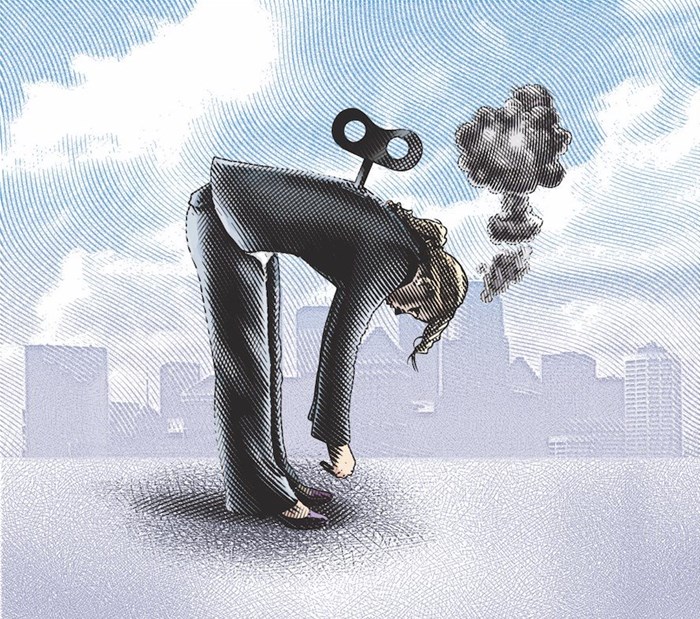Mental health in the workplace is becoming a focus for progressive organisations that value their employees as people, not costs on a balance sheet. And smart leaders realise how physically and mentally healthy employees are good, not only for productivity but also for a positive culture.
Despite the increased awareness, burnout is getting worse, as in tough economic times, greater outputs are needed from employees. A survey by Oxford University shows that South Africans have amongst the longest working hours in the world, with the average employee working 40 to 48 hours a week and 21% of our workforce working 49+ hours a week.
A report by Our World in Data on working hours shows that although South Africans work longer hours, we’re not matching the productivity levels of developed nations who work less. Working such long hours over a prolonged time without adequate rest increases the chance of burnout and decreases performance.
Michael Gullan, CEO of G&G Advocacy, an e-learning consultancy, says burnout is a real crisis amongst South African businesses of all sizes. It has increased dramatically since the pandemic, even with increased remote and hybrid working. Gullan says that burnout doesn’t discriminate based on age and is no longer reserved for people in their 40s or 50s. “Our ‘always-on’ culture negatively influences our ability to have downtime, which impacts brain functioning as our brains cannot adequately replenish.”
Gullan describes occupational burnout as energy depletion or exhaustion, mental distance from work tasks, negativity or cynicism related to work, and reduced professional efficacy and offers the following solutions to HR professionals and business leaders.
1. Information is power
Employees can recover from or prevent burnout when they understand their mental health challenges, strengths, and weaknesses and create a satisfying work life. Organisations should provide adequate, relevant information to empower employees to understand and take care of their mental health. “One of the key courses we recommend to all our clients is a Whole Employee Wellness course relevant to that particular business,” Gullan says. “It must be interactive and gamified and assist employees in taking control of their mental health.” Content CapsulesTM can include:
- The important commitment to a healthy body and mind
- Understand your strengths and interests
- Clarify your work allies and support structure at work
- Keep track of changes in your mental health
- Mindfulness and stress management
- Time management
- Identify and manage triggers that negatively impact your health
- Learning how to reframe
- Your health rights in the workplace
2. Learning fills you up
It's logical to think that the last thing burnt-out employees need is more training added to their busy schedules. However, research proves that learning new skills can improve your mental well-being by boosting self-confidence and self-esteem.
3. Learning builds a sense of purpose
When you engage in e-learning within your team or organisation, you will feel connected to your colleagues and your organisation and become a co-creator of your personal and business success.
4. Learning connects with others
A well-structured e-learning programme should take learning offline so that learners can discuss and engage with their colleagues about their new skills. Throw gamification strategies into the mix, and you can ignite happy, healthy competition that augments interest and builds culture.
5. Learning helps you understand yourself
“The more you learn about the world outside yourself, the more you’ll get to know yourself,” Gullan says. “With a clear self-image and understanding of your uniqueness, you can play to your strengths at work and life and live a fulfilled and satisfying life.”
Steve Hankin of Mckinsey says there is a 'war for talent' and organisations must compete to find, select, and retain talent. Gullan adds that preventing burnout and staff turnover and helping your people flourish in the workplace is just as essential as finding the best talent. “Pressure and stress are not going away and we need to empower employees, especially in South Africa where unemployment is rife, with the skills to manage their stress, to use their time wisely, to keep learning and growing, and to better understand how to prevent and recover from burnout.”













































